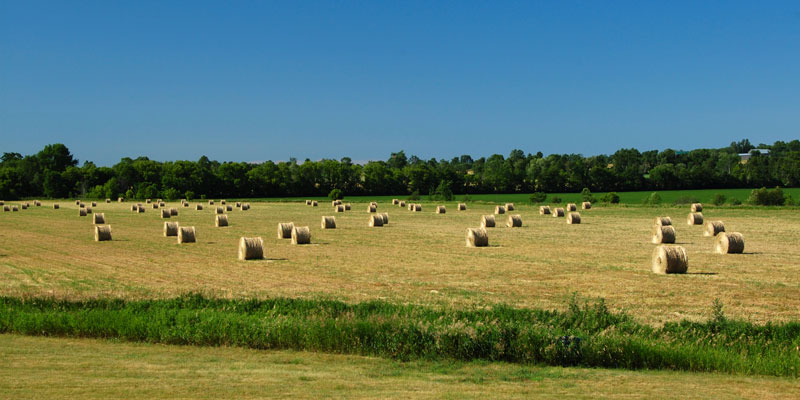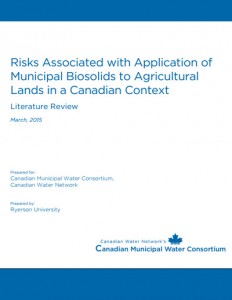Assessment of the Potential Risks Associated with the Application of Municipal Biosolids to Agricultural Land in the Canadian Context
Principal Investigator - Lynda McCarthy, Professor, Ryerson University, 2013 - 2014

Challenge
The practice of applying biosolids to agricultural lands has a long history in Canada. The practice supplies nutrients for crop growth and is an effective means for waste management, helping close a key nutrient cycle. However, biosolid application to agricultural soils carries potential risks; primarily exposure of humans, plants and animals to contaminants or pathogens.
A lack of Canada-wide coordination has led to research fragmentation and knowledge gaps in the area. There is a need to summarize, interpret, and evaluate current knowledge on the risks and benefits of biosolid application to agricultural lands to allow for best practices in the management of this practice. Key uncertainties include the presence, risk, fate, and transport of Emerging Substances of Concern (ESOC) and pathogens. ESOC are present in some Canadian biosolids and pose potential adverse effects on terrestrial and aquatic ecosystems. Other uncertainties include how treatment and application of biosolids may affect ESOC and pathogens, factors that impact public perception of biosolids use, and which key elements impact the adoption of sustainable practices of biosolids land application.
The project team, led by Drs. Lynda McCarthy and Jorge Loyo, will investigate these uncertainties through both a comprehensive report, and the development of a national consultation workshop and on-line dialogue forum.
Project
This project is divided into two main tasks: 1) creating a comprehensive report related to the application of municipal biosolids to agricultural soil, and 2) developing the key elements for the design of a national consultation workshop and on-line dialogue forum.
The comprehensive report will be comprised of two main sections. The first will include a review of key scientific literature and other literature on potential risks related to the application of municipal biosolids to agricultural soils. This review will focus on human and environmental health; specifically the possible impact of ESCOCs and pathogens present in biosolids, and will evaluate how regulatory and socioeconomic factors may prevent the sustainable use of biosolids in agricultural applications. The second component of the report will take current knowledge and practice of municipal biosolids application in Canada and integrate it with the information uncovered in the literature review.
The second task in this project is developing a national consultation workshop and online dialogue forum. The intended purpose of the workshop and forum are to improve the dissemination of issues related to the application of municipal biosolids on agricultural lands in Canada. Additionally, this process will advance the discussion on practice and policy options, risks, and opportunities. To focus the workshop and forum, an expert modelling approach will be used to determine what key issues will be disseminated throughout the process. Expert modelling summarizes knowledge to make judgements about the topics at hand and the issues related to it.
Outputs
- Dissemination of knowledge and results by developing a transparent and clear workshop and online forum.
Outcomes
- Enhancement of knowledge concerning the agricultural application of biosolids in the Canadian context. This will enable end-users to focus initiatives into areas of need.
- Informing practices for provincial and federal regulatory end-users to give regulators a snap shot of how their frameworks and best management practice guidelines meet and address many real and perceived risks, which will better allow them to address areas of concern for the public. This will allow both industry and the public to have a blueprint for further research needs, potential improvements in biosolids management practices, and ultimately regulatory reform if it is deemed necessary.





